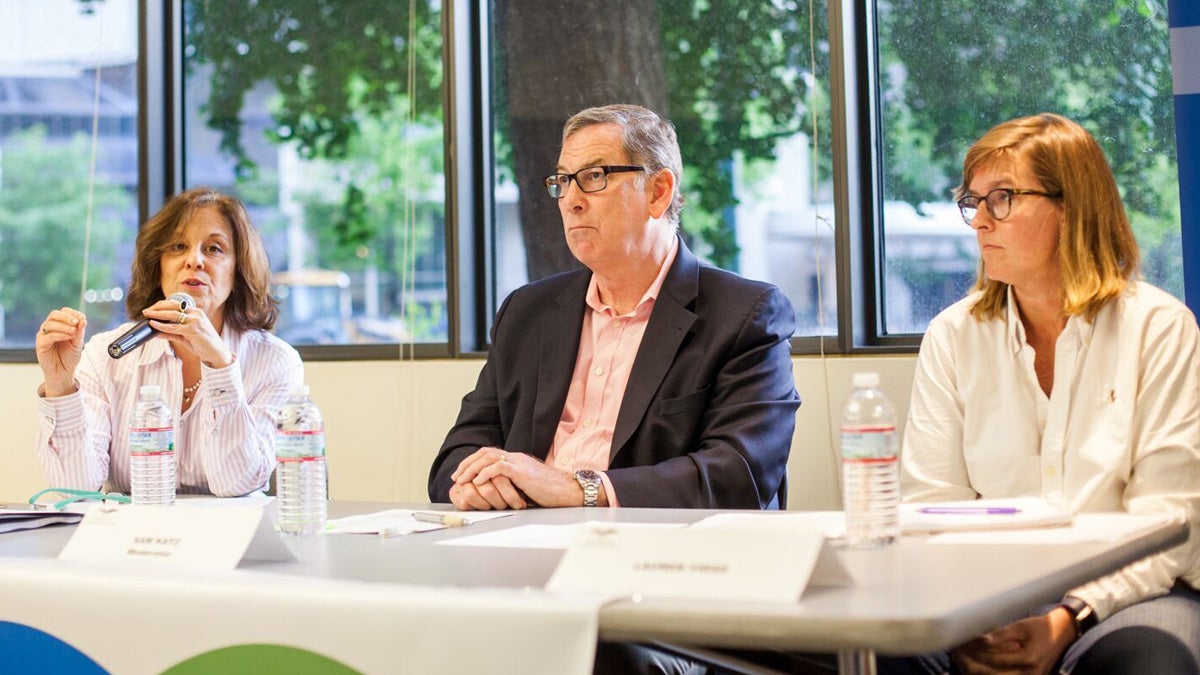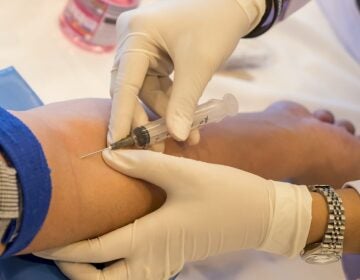Crosstown Coalition debate questions who will pay proposed Philly sugary drinks tax

Public Citizens for Children and Youth executive director Donna Cooper
In Philadelphia, the debate over a proposed tax on soda and other sugary drinks has been playing out in City Council, through TV and radio ads and on social media.
On Monday evening, advocates on both sides squared off in a live debate.
The event, hosted by the Philadelphia Crosstown Coalition, pitted Public Citizens for Children and Youth Executive Director Donna Cooper against Lauren Vidas, an attorney and lobbyist for the Philadelphia Beverage Association.
The opening question posed by moderator Sam Katz: who will pay the tax?
Opponents of Mayor Jim Kenney’s proposal for a three-cents-per-ounce levy on sugary beverages have argued it is a regressive tax and would hurt hurt the low-income residents it’s designed to help. Much of the money raised by the tax would fund citywide pre-K and improvements to parks, recreation centers and libraries.
“I’ll tell you who will pay the tax: the people who can’t afford to leave the city to do their grocery shopping,” said Vidas. “Who’s going to avoid the tax? Everybody who’s going to get in the car and drive over the Ben Franklin Bridge to go to Wegman’s on their Saturday to stock up for their family.”
Cooper argued the burden would fall on higher-income Philadelphians because poor residents would avoid spending their limited income on drinks have have increased in price.
“They’re not stupid,” she said. “And so they shift to products that are typically less expensive or in this case untaxed compared to those that will be more taxed.” Diet drinks, those without added sweeteners and juices, for example would not be subject to the tax.
Cooper compared the proposed sugary drinks tax to the city’s liquor-by-the-drink tax, which passed in 1995 despite fears bars and restaurants would lose business to the surrounding counties, and nearby New Jersey and Delaware.
“People are interested in this kind of tax because it’s not forced on them, but if they want to make that purchase they can still do so and at least know it’s going to benefit the rec centers and pre-K,” she said.
Vidas, who called the tax “great politics and bad policy,” countered that the city should be stepping up collections of taxes owed, rather than passing new ones. She also warned that even if the measure passes, citywide pre-K and other initiatives could be held up for a few years by legal challenges. The beverage industry has argued it’s a duplicate sales tax and unfairly singles out one item in violation of a part of Pennsylvania’s constitution that demands taxes be applied uniformly.
“It’s going to be decided by the courts while a lot of the programs that are supposed to be funded by this tax are in limbo while the legal questions get ironed out,” Vidas said.
The fate of the tax is in the hands of Philadelphia City Council, which is expected to vote next month.
WHYY is your source for fact-based, in-depth journalism and information. As a nonprofit organization, we rely on financial support from readers like you. Please give today.




